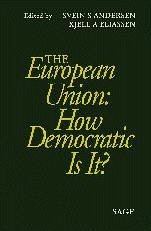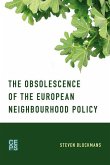Taking as its starting point the major issues of democracy which are the ongoing concerns of every liberal Western political system, this volume offers a wide-ranging review of democracy in the European Union. It treats the EU as a new type of political system within the tradition of parliamentary democracies, a system which is neither federal nor intergovernmental, and which consequently has unique problems of how to handle democratic requirements. Part One deals with the two major challenges of interest articulation in the EU, political parties and lobbying. The second part discusses how democracy becomes the key element in the linkage between the EU and its member states, focusing on France, Italy and Belgium where the relation to the EU constitutes an important part of the national democratic debate. The third part focuses on democratic aspects of key EU institutions - the European Council, the European Commission and the European Parliament. The final part looks at democracy in relation to possible EU development generally, and in the context of societal change which may tend to undermine the role of parliamentary institutions.
`This collection of essays.... includes several useful chapters: Andersen and Burns' thoughtful essay on `post-parliamentary governance', Pedersen's treatment of Euro-cooperation between parties, Wessel's portrayal of the EU as `a new kind of polity', and excellent analyses by Laursen and Hayes-Renshaw of the Commission and Council (respectively). Lane et al. offer a particularly interesting examination of the obsolescence of majority voting in a future, much-enlarged EU' - Political Studies `This is a timely title. The well-worn clich[ac]e - a sort of twisted verison of a Groucho Marx witticism- has it that, were the EU to apply to join itself, it would not get in. The implicit assumption, one with which most Europeans would presumably agree, is that the EU should be democratic.... the book is a welcome and thought-provoking addition to a growing literature' - Journal of Legislative Studies








